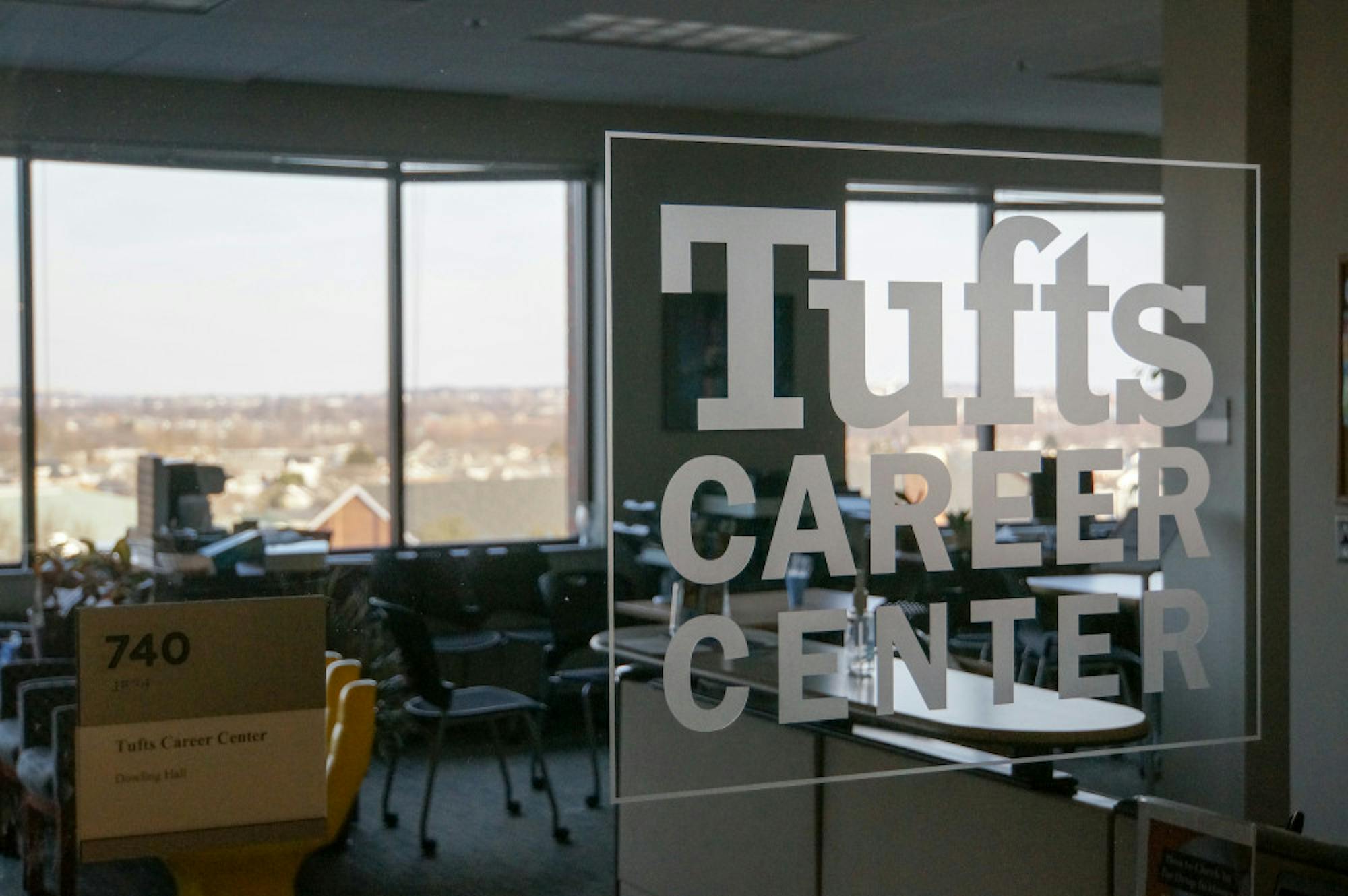The Career Center recently launched the Career Communities program, which will grant students the opportunity to meet with generalist advisors or specialist career community advisors based on their emerging interests, according to Donna Esposito, the interim executive director of the center. The new program model will be adopted in phases.
Esposito explained that the office has worked for several years to develop a new model to support students in defining their career paths.
“We've looked at best practices in our field, seen what works at peer institutions, and created a model that is customized for the Tufts community,” Esposito wrote in an email to the Daily.
She added that the Career Center has adopted a phased approach to launching the Career Communities model this semester.
"In Phase 1- we are currently offering more options for career-field specific advising ... we are excited about these enhancements to career advising and look forward to Phase 2, the launch of our new website, later this fall," she said.
Esposito shared that while a generalist advisor supports students in exploring their interests, skills, values and options, a specialist advisor focuses primarily on connecting students with others within their specific career community.
The career communities include, but are not limited to, Communications & Media, Education, Finance, Arts, Healthcare, Life Sciences & The Environment and Engineering, Technology & Physical Sciences, according to Esposito.
“This new model will allow us to highlight opportunities and alumni of interest for particular career communities, in turn, giving students greater access to “insider tips,” opportunities to connect to professionals within specific career fields, and job and internship postings,” she said.
Robin Kahan, associate director of engineering career services, expressed excitement at the various opportunities the program will provide for students.
Kahan believes the dynamic communities under the program will encourage students to recognize that their majors do not define their career paths.
“They will be able to see how the skills and competencies they want to use and the interests they are cultivating are important in a variety of industries,” she wrote in an email to the Daily.
Echoing Esposito, Kahan emphasized that the Career Community model will allow the center to organize information related to jobs, internships and other resources for students.
The center is also working on enhancing its website, which will offer various specialized sections based on the user’s specific career communities.
“We’ll be able to have a website with online “homes” for each of our seven career communities. You’ll find information from Handshake, including virtual events and fairs, jobs, internships, research and volunteer opportunities curated for each particular community,” Esposito said.
She added that the communities on the website will display blog posts, other career resources and community subgroups with suggested tools for searching for jobs and internships, exploring careers, networking and researching employers.
Sophomore Dayana Chumburidze shared her enthusiasm for the program's ability to more easily connect students with alumni in their specific fields of interest.
“As someone who does not particularly enjoy networking with professionals in the field, I would definitely find it more comfortable to communicate with people who have something in common with me,” she wrote in an electronic message to the Daily.
Junior Ashley Aron, who is majoring in international relations, explained that the new program can help further define her career path.
“I would definitely take advantage of this program because I feel like there are so many different career paths for people in international relations and I often draw inspiration from the paths that alumni take after college,” Aron said.
Kahan offered a specific example of how students will be able to take advantage of the program.
“A Chemical Engineer could follow the Healthcare, Life Sciences & The Environment community, the Engineering, Technology and Physical Sciences community ... based on a possible interest in creating environmentally friendly and long-lasting batteries," Kahan wrote.
Esposito explained that the Career Communities program differs from The Herd, a mentoring program intended to connect students with alumni in various industries. A student will have the opportunity to follow a certain career community, and then contact alumni in The Herd in a more streamlined way.
Esposito shared her goals for the program this year.
“Our goal is to better support students at all stages of the career development process, giving them a more customized experience with access to enhanced resources, increased specialized guidance, better access to competitive industry connections and professional communities,” she said.






